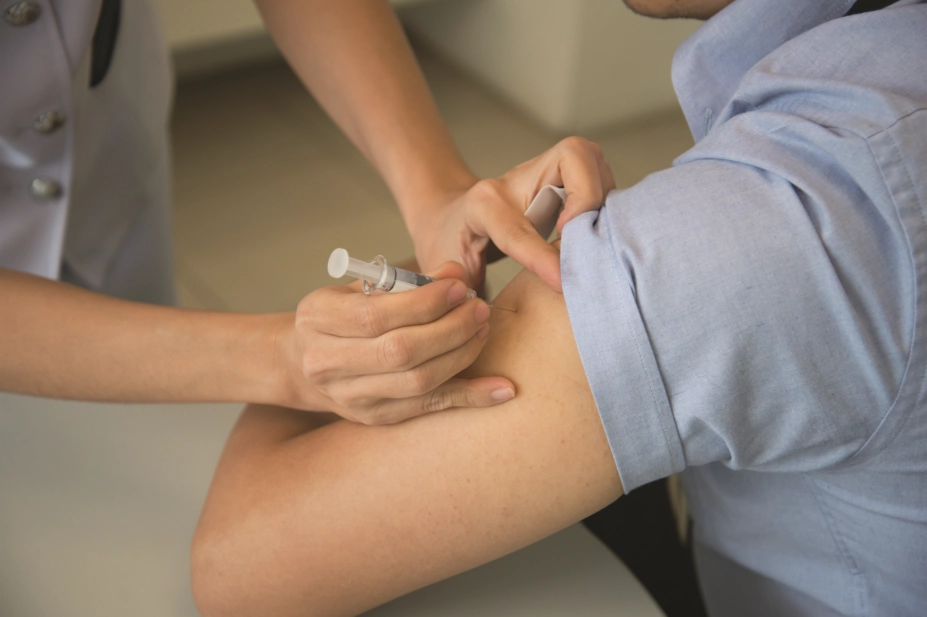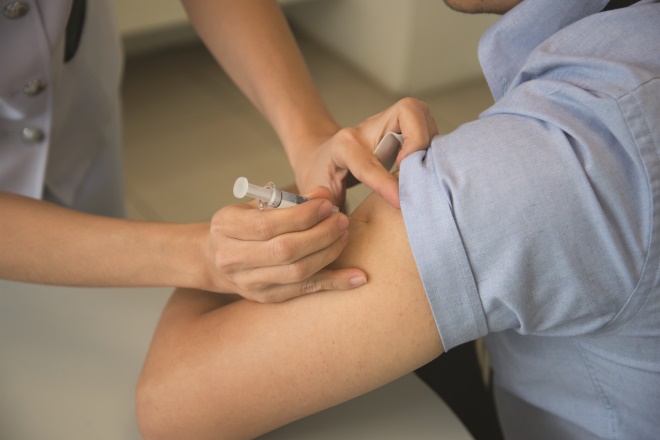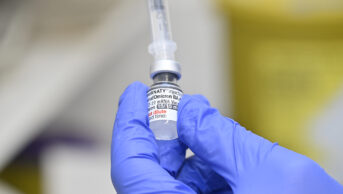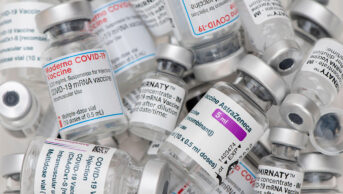
Shutterstock.com
Open access article
The Royal Pharmaceutical Society has made this article free to access in order to help healthcare professionals stay informed about an issue of national importance.
To learn more about coronavirus, please visit: https://www.rpharms.com/resources/pharmacy-guides/wuhan-novel-coronavirus

Source: Shutterstock.com
The Department of Health and Social Care have called for the supervision of an experienced vaccinator for healthcare staff newly qualified to administer vaccines
Pharmacists will be able to administer an unlicensed COVID-19 vaccination when one becomes available, following changes to the Human Medicine Regulations (HMR) that come into effect from 16 October 2020.
The amendments follow a government consultation on the delivery of COVID-19 and flu vaccines using a wider workforce, potentially including pharmacy technicians.
In its consultation response, published on 16 October 2020, the Department of Health and Social Care (DHSC) said national protocols would be created in each of the UK’s four countries to determine who could administer any COVID-19 or flu vaccine.
Under the government’s original proposals, any registered healthcare professional would be allowed to administer a COVID-19 vaccine.
However, in its response to the consultation, the Department of Health and Social Care said the protocols should include “where appropriate, requirements for the supervision of an additional experienced vaccinator” for healthcare staff newly qualified to administer vaccines.
Pharmacy technicians, who are registered with the General Pharmaceutical Council, are currently not allowed to vaccinate under patient group directions (PGDs), and the DHSC’s response did not specify which categories of healthcare professionals would be newly able to provide vaccinations. This will be decided in each of the UK’s countries.
“For example, one UK nation might want to train student nurses and doctors to administer COVID-19 vaccines or flu vaccines whereas another UK nation may not choose that route,” it said. “The proposals allow each administration a clear and supportive legal framework to select their preferred deployment option.”
The DHSC previously told The Pharmaceutical Journal that no options were off the table when asked whether pharmacy technicians would be involved.
Matt Hancock, health and social care secretary, said: “These legal changes will help us in doing everything we can to make sure we are ready to roll out a safe and effective COVID-19 vaccine as soon as it has passed clinical trials and undergone rigorous checks by the regulator.”
Liz Fidler, president of the Association of Pharmacy Technicians UK, told The Pharmaceutical Journal that the legislative amendments are “extremely welcomed”.
“Although the government’s response does not provide the much-needed legislation change to enable pharmacy technicians to administer vaccines under a PGD, it does provide the route for pharmacy technicians to vaccinate under protocols,” she said. “It is essential that work begins on developing the education and regulatory frameworks to support this.”
The government also said that a “comprehensive training package” was being put together by NHS England and Improvement, professional bodies and Public Health England to extend the vaccination workforce.
“New vaccinators will have to undergo both a comprehensive training programme and competency assessment to ensure they can safely administer vaccines to patients under the clinical supervision of an experienced healthcare professional. This training will include how to deal with possible adverse reactions to a vaccine,” the document said.
The original document proposed expanding the scope of PGDs to include vaccinations that had been temporarily authorised under regulation 174 of the HMR. In its response, the government said it would review the impact of regulation 174 after a year.
Regulation 174 enables the temporary authorisation of the supply of an unlicensed medicine in response to a public health emergency. Currently, a PGD cannot be used to administer anything that does not have a full marketing authorisation, but this change would enable healthcare professionals who already deliver vaccinations under PGDs to continue to do so for unlicensed vaccines.
The government’s consultation ran from 28 August to 18 September 2020.


